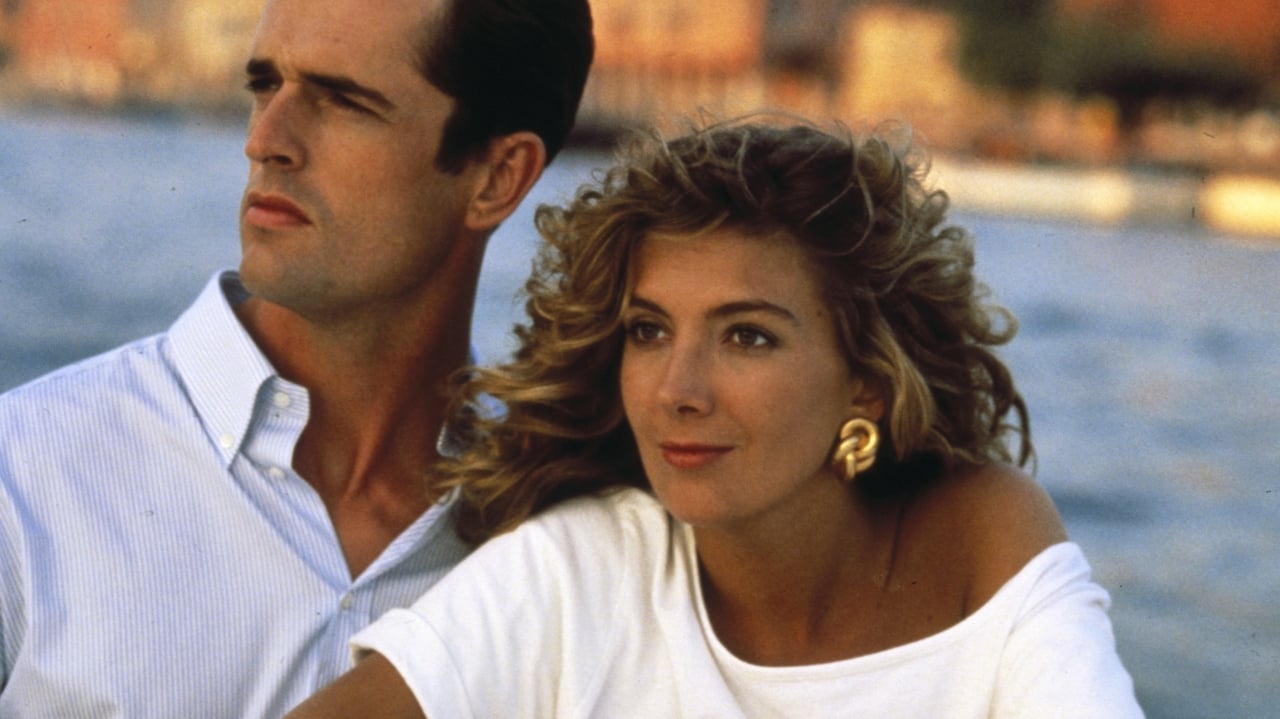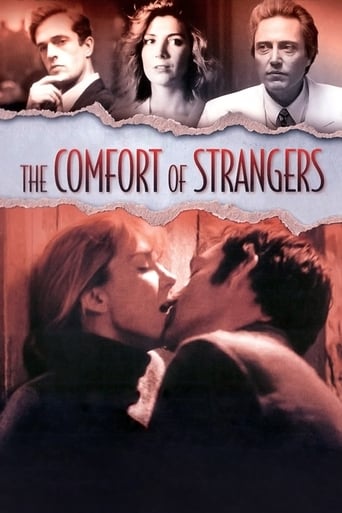

Don't Believe the Hype
... View MoreJust intense enough to provide a much-needed diversion, just lightweight enough to make you forget about it soon after it’s over. It’s not exactly “good,” per se, but it does what it sets out to do in terms of putting us on edge, which makes it … successful?
... View MoreThe movie turns out to be a little better than the average. Starting from a romantic formula often seen in the cinema, it ends in the most predictable (and somewhat bland) way.
... View MoreI think this is a new genre that they're all sort of working their way through it and haven't got all the kinks worked out yet but it's a genre that works for me.
... View MoreArt movies often resemble sexploitation films with plusher production values, and the elegantly depraved Walken & Mirren in 'The Comfort of Strangers' strongly recall Bowie & Deneuve in 'The Hunger'. Some of the set pieces like Walken's picture gallery of photos of Rupert Everett could have come straight from an Italian 'giallo' of the seventies; while the conclusion would have been 'rationalised' by Jesús Franco as a vampiric rite rather than as the culmination of homoerotic infatuation.
... View MoreI saw this film on the strength of an NPR review. This was decades ago before I had even heard of Rupert Everett or Helen Mirren. When I came across something (I forget what) that said Helen Mirren was in the movie, I had to go rent it and watching again because I couldn't figure out who her character was. It was such an un-Helen Mirren-esque part but she stilled nailed it. And the movie has that car wreck vibe - you don't want to watch it play out, but you can't help yourself. Definitely one of my favorite movies.
... View MoreI had never heard of this film before I stumbled across it one evening. I am a big fan of Christopher Walken and noticed that Helen Mirren was in it too. Rupert Everett and Natasha Richardson also star - so I assumed (wrongly) this would be worth watching.It's not.Set in Venice, we see a strained relationship between Everett and Richardson as a holidaying couple. They meet Walken one evening as they were looking for a bar, they have some drinks, Walken invites them to stay at his house and there they meet Mirren. I could elaborate more and even give the ending away (an ending that could not come soon enough) but even that would be a waste of time.I cannot even explain the plot because it makes no sense. A bit like the dialogue too. Everett spends the whole time either walking (semi-bounding if you ask me - where did he learn to walk like that?) around with one hand in his pocket looking totally bored with everything or talking cack-handed, pompous rubbish. Richardson looks like she'd rather suck on a bag of lemons than be in this film and as for Mirren and Walken - why they ever signed up at all is beyond me. The dialogue is so bad - it has to be heard to be believed. One such example is Everett asks why Walken was secretly taking pictures of him before they met. Walken answers: "See that Barber Shop. My grandfather went to that Barber shop. My father went to that barber shop. I go to that barber shop." Then he turns to look at an island in the distance and says "See over there? That's Cemetery Island." Does a short snort and walks off screen - scene over. What????This is a waste of time, energy, acting talent, anything else you want to throw in. Not worth watching even if you were given a free giant Pizza and a pint of Peroni to add to the Italian ambiance.I would have given this film 0/10 if there was an option. Unfortunately, there wasn't. 1/10. Avoid like the plague.
... View MoreI bought this in a set marked as 'Triple Feature Romance'. I can't imagine the morbid mind that would consider this movie a romance! I don't think I would have liked it even if I hadn't been expecting an undemanding love story, but then I probably wouldn't have watched it if it had been in a set with an accurate label. Certainly there is sex, even love, mostly of a very odd, sick type, but the obsession that leads a couple to murder the unwitting object of their sexual fantasies goes beyond the mere quirkiness of BDSM and stalking into a truly surreal madness. Yes, the scenery is nice, but I'm not sure Colin is quite so beautiful as to cause such fascination at first sight from a distance, though the obsessive couple are frighteningly believable. *shudder* But I'm not sure I can believe the two would be so stupid as to return to the apartment of a man they already have good reason to feel uneasy about! Going there in the first place was odd enough after their experience with him the night before.Yuck!
... View More